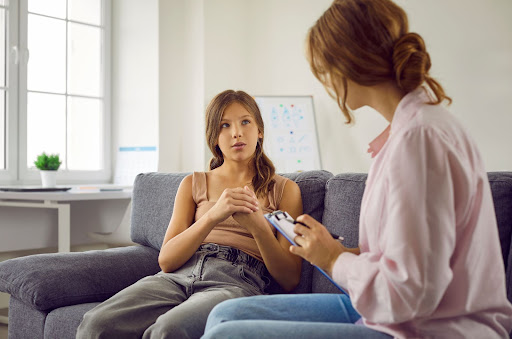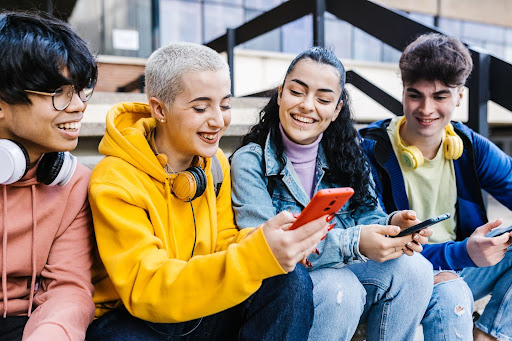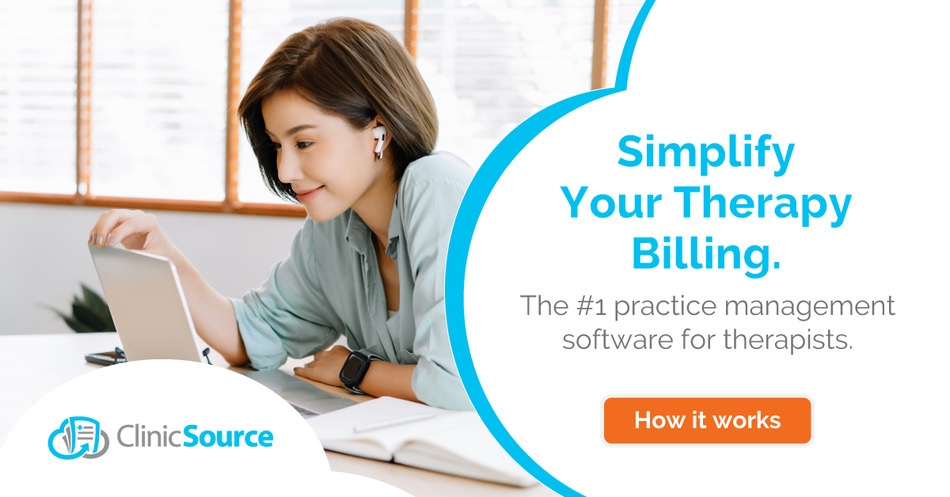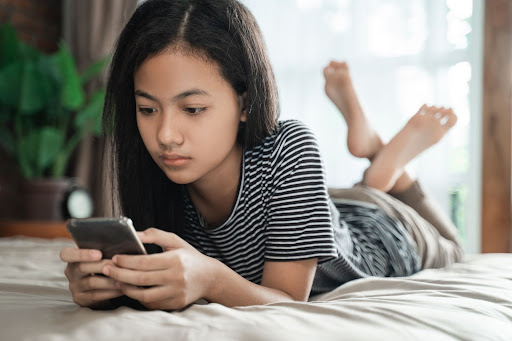
Highlights
- Teen social media use can lead to mental health concerns like depression, poor self-esteem, and sleep disturbance.
- Despite many negative effects, social media use among teens can provide benefits like support, friendship, and freedom of self-expression.
- Understanding teen social media use and its effects is critical to providing appropriate therapy to adolescent patients.
Teen social media use is highly prevalent in the U.S. and has far-reaching effects on adolescent mental health. For therapists who work with teens, it’s vital to understand the latest research on teens and social media, including studies showing the positive and negative effects these sites have on young people.
Understanding what media teens use and how it affects their mental health can help you choose an appropriate behavioral therapy for treatment.
Teen Social Media Use Trends
According to the Pew Research Center, 97% of teens use the internet every day, with 46% using it almost constantly. Many teens use the internet to access social media sites like TikTok, Instagram, and YouTube.
About 95% of teens use YouTube, 67% TikTok, and 62% Instagram, with nearly 35% of teens between 13 and 17 reporting they use one of these platforms almost constantly.
The increase in consistency and general social media usage among adolescents often has real-world effects on teen mental health. A separate Pew Research article reported that 38% of teens feel overwhelmed by the drama on social media and 31% feel left out after viewing their friends’ posts. 23% of teens say social media makes them feel worse about their lives.
It is essential to review current therapy research regarding adolescents and social media to better understand how it affects teen mental health and the best ways to integrate these findings into your treatment processes.
Potential Negative Effects of Social Media On Teens
Teenagers’ use of social media can negatively affect their mental health and development. Studies have linked cyberbullying, depression symptoms, sleep disturbances, and self-esteem issues with social media.
Cyberbullying
Nearly 46% of American teens report experiencing at least one cyberbullying behavior, such as offensive name-calling or spreading fake rumors about them. Cyberbullying is more common among girls, with 54% of 15- and 17-year-old girls experiencing cyberbullying compared to 41% of teen boys.
Cyberbullying might be worse than traditional bullying since perpetrators act anonymously and can target their victims anytime. Victims of cyberbullying may suffer increased levels of depression, anxiety, and loneliness alongside self-esteem issues and chronic school absences compared to those who experienced bullying in person. A 2022 study found that cyberbullying might be more likely to cause suicidal ideation than offline bullying.
Sleep Issues
Sleep issues are common among teenagers who use social media frequently, especially before they go to sleep. A 2021 meta-analysis of 20 cross-sectional studies found a 53% increase in poor sleep quality among teenagers who regularly use social media before bed and an increase in daytime fatigue and sleepiness.
A 2021 study demonstrated that social media addiction negatively affects high school students’ sleep efficiency. It also found that addiction to social media was correlated with emotional and conduct issues, problems with peers, poor sleep quality, and attention deficit/hyperactivity at school.

Depression
As online communication increases and replaces in-person contact, depression rates rise among teenagers. A 2021 study found that 48% of teenagers spent 5 hours a day on social media platforms, and 12% spent over 10 hours.
Increasing online time was associated with greater symptoms of depression. During the pandemic, schoolchildren who spent more time on smartphones experienced more psychological distress, including depression, than those who spent less time online.
Poor Self-Esteem
The constant comparison with more attractive models and influencers on social media can lead to low self-esteem among adolescents. Teenage girls are especially at risk of body image issues, causing them to lose dangerous amounts of weight and develop disordered eating patterns.
A 2019 study found that participants who reported using social media filters had an increased acceptance of using cosmetic surgery to modify their appearance. Those who use photo-editing images to change their social media images may often deal with low self-esteem and related issues.

Are There Any Benefits to Teen Social Media Use?
Despite several negative effects social media may have on adolescent mental health, there are a few benefits. Many of the positives of social media usage are self-reported by teens.
A recent Pew Research Center study found that 80% of teens feel more connected with friends on social media, and 71% say it’s a place where they can show their creativity. Another 67% say they view social spaces as a place to find support and acceptance.
A 2017 article published in the American Academy of Pediatrics stated that social media could help teens develop their identity, engage with peers, and promote aspirational development. Around 90% of teens use social media to connect with friends, and 66% make new friends using these platforms.
Best Practices for Therapists Working with Teens
Effective treatment for adolescents dealing with social media-related issues is highly variable due to multiple factors affecting their mental health. The best approaches require therapists to identify core issues affecting their patients and adapt treatment modalities to address underlying problems.
For example, one teen’s depression may be due to poor online relationships or cyberbullying, whereas another teen’s depression may be connected to poor sleep due to constant social media use. Therapists sometimes need to use unique treatment approaches to help clients improve their mental health.
According to the American Academy of Child & Adolescent Psychiatry, some of the best therapy methods to use with teens include:
- Acceptance and commitment therapy (ACT)
- Dialectical behavior therapy (DBT)
- Cognitive behavior therapy (CBT)
- Supportive therapy
- Interpersonal therapy (IPT)
Provide Effective Behavioral Health Treatment for Teen Social Media Use Issues
Keeping your therapy practice running smoothly allows you to provide the best treatment possible for patients dealing with problems related to social media use. The right therapy practice management software offers features specialized for mental health and pediatrics. It streamlines documentation, scheduling, and billing, so you spend less time on administrative tasks and more time with your clients.
Book a demo today to see how ClinicSource therapy practice management software can free up more time for you to care for your adolescent patients.

Let Us Show You











